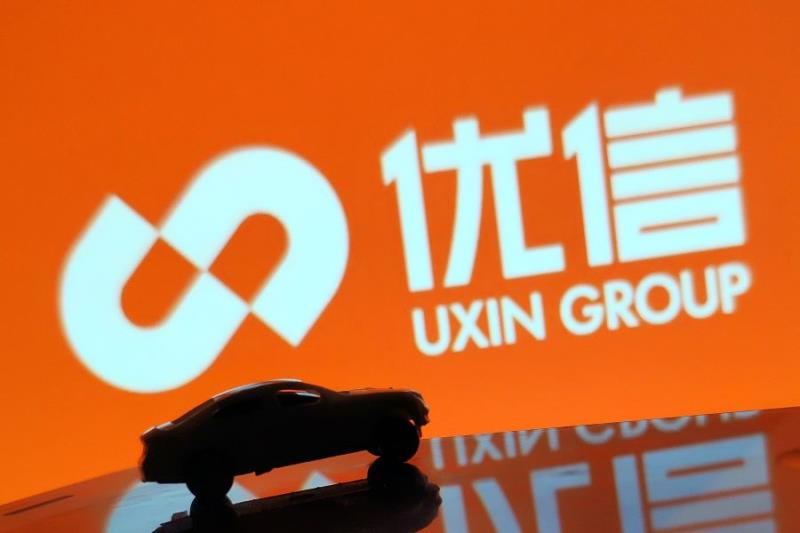Used Car Specialist Uxin Gets Jump Start from Shifting Gears

Shares rally as company announces first results from its new business model and Singaporean sovereign wealth fund GIC boosts stake
Key points:
- Uxin is emerging from a major transformation to a direct seller of used cars from previous model as middleman for used-car sales
- While such a model carries higher margins and gives Uxin more control over the business, it also requires far more cash, which Uxin is trying to raise
By Doug Young
Nothing gets investors excited like a new story from an old company, together with a major cash infusion from new investors.
That certainly seems to be the case with Uxin Ltd. (Nasdaq: UXIN), whose shares rallied by nearly 60% last week on the company’s latest earnings report, accompanied by a concurrent filing that showed a major global investor had significantly upped its stake in the company. Uxin has quite a few moving parts these days, which we’ll review shortly.
But the bottom line is that Uxin is dumping its old business model of acting as a go-between for used car buyers and sellers and getting into the higher-margin but also significantly higher cost business of becoming an online used-car dealer. At the same time, the company is in a frenzy to raise cash to fund the new business, as its current cash pile runs dangerously low.
All that said, we’ll start with the latest news that came from Uxin’s new earnings report released a week ago. The revenue and profit trends from the report aren’t extremely meaningful, since the company is in the midst of a transformation, and thus the latest numbers are more reflective of the newer business model, whereas year-ago figures reflect the older one.
Probably the most-meaningful trend was the company’s gross profit margin, which was 2.9% in the final three months of last year, versus a gross loss margin of 22.4% in the previous quarter and down sharply from the 59.2% profit margin a year earlier under the old business model. The company did forecast the number would improve on a quarter-to-quarter basis, saying it expected to report a gross margin of around 5% in the current quarter.
“Operating as a nationwide online used car dealer with our own inventory, we now have much-stronger control and management over the entire service and supply chain from the selection and quality of our used car inventory, to online car consulting for buyers and customer service and our own delivery and aftersales services nationwide,” founder Dai Kun said in a statement.
This particular transformation won’t come easily, due to the much higher cost of owning used cars versus simply acting as a middleman for other people buying and selling such cars. That reality was apparent in Uxin’s used car sales under the new model totaling a very modest 2,307 in the last three months of last year. It had no such sales a year ago, but its platform facilitated a much larger 28,302 used car sales for other buyers and sellers in the year-ago period.
Concurrent with the latest quarterly results, the company also got a vote of confidence in its new model via a separate filing from Singaporean sovereign wealth fund GIC, which disclosed it had increased its stake in Uxin to 17.5%. Uxin previously disclosed GIC held 5% of its shares last May, and GIC revealed it had boosted that stake to 11.4% by last October.
Moving Parts
Let’s now have a look at Uxin’s many moving parts, including a steady stream of changing investors and the company’s own string of asset sales as part of its transformation and also efforts to raise cash.
The company’s list of major investors is actually quite impressive when one considers its relatively small $1 billion market cap and its ongoing transformation. In addition to GIC, the company counts U.S. private equity giants Warburg Pincus and TPG among its major stakeholders, as well as China’s own online classifieds giant 58.com, often called the Craig’s List of China.
While GIC has recently boosted its stake in Uxin, the reverse is true for TPG and Warburg Pincus, though the latter two remain large stakeholders. TPG sold down its stake to 7.2% last October from a previous 8.3% disclosed last May; and Warburg sold down its stake to 14.2% from a previous 16.3% over the same period. The stake held by 58.com has remained constant at 9.9%.
Then there’s the cash issue. As of Dec. 31 last year, the company reported having just 288 million yuan ($44 million) in cash. That’s quite a small amount when one considers the big cash requirements for its new business model, which also includes opening a chain of inspection and reconditioning centers nationwide.
The company raised some modest amounts last year through the sale of its B2B business to 58.com for about $100 million, and the sale of its salvage car related business for 330 million yuan, or roughly another $50 million. More significantly, it announced in its latest results that two major new investors, referred to only as “well-established Asian funds,” agreed at the end of last month to invest another $300 million in the company.
Assuming that funding is completed, the company’s situation will be “significantly improved,” CFO John Lin said on a call after the results were announced.
While the signals coming from Uxin clearly show a company in the midst of a major overhaul, the U.S. shows there’s certainly a market for this kind of online used-car trader. Two similar companies, CarGurus and Copart, currently trade at price-to-earnings (PE) ratios of 36 and 42, though both of these companies are more similar to Uxin’s old middleman business model. CarMax, which is a more traditional offline used car seller, trades at lower but still healthy PE of 29.
Uxin has never earned a profit in its life as a publicly traded company, which dates back to its June 2018 IPO on the Nasdaq. Its shares moved steadily down from their IPO price of $9 and were as low as $0.72 at one point as investors worried about the company’s future.
The latest bounce in its price to about $3 appears to show investors are cautiously optimistic about the new business model. But Uxin will have its work cut out in the next couple of years as it tries to show investors it has the financial resources and capability to not only run its new business model, but also earn profits from it.
The Bamboo Works offers a wide-ranging mix of coverage on U.S.- and Hong Kong-listed Chinese companies, including some sponsored content. For additional queries, including questions on individual articles, please contact us by clicking here.
To subscribe to Bamboo Works weekly newsletter, click here






